Ultimate Guide to Double A Batteries Comparing Performance Lifespan and Efficiency
 In today's fast-paced technological landscape, the demand for reliable power sources has never been greater, particularly when it comes to double A batteries. According to a recent industry report by the Freedonia Group, the market for portable batteries is projected to reach $14 billion by 2025, with double A batteries accounting for a significant portion due to their versatility and widespread usage in everyday devices. When it comes to performance, lifespan, and efficiency, the choice of double A battery can profoundly impact both consumer satisfaction and overall device performance. With advancements in battery technology and increased competition among manufacturers, understanding the nuances of various double A battery options is crucial for making informed purchasing decisions. This ultimate guide aims to delve deep into the characteristics that define the best double A batteries, helping users compare and choose the right solution for their needs.
In today's fast-paced technological landscape, the demand for reliable power sources has never been greater, particularly when it comes to double A batteries. According to a recent industry report by the Freedonia Group, the market for portable batteries is projected to reach $14 billion by 2025, with double A batteries accounting for a significant portion due to their versatility and widespread usage in everyday devices. When it comes to performance, lifespan, and efficiency, the choice of double A battery can profoundly impact both consumer satisfaction and overall device performance. With advancements in battery technology and increased competition among manufacturers, understanding the nuances of various double A battery options is crucial for making informed purchasing decisions. This ultimate guide aims to delve deep into the characteristics that define the best double A batteries, helping users compare and choose the right solution for their needs.
Understanding the Basics of Double A Batteries: Types and Uses
When it comes to powering our everyday devices,
AA batteries are often the go-to choice.
Understanding the basics of these batteries starts with recognizing the different types available:
alkaline,
lithium, and
rechargeable (NiMH).
According to industry reports, alkaline AA batteries are the most commonly used, providing a nominal voltage of
1.5 volts and typically lasting for
5 to 10 hours in high-drain devices. In contrast,
lithium AA batteries offer enhanced performance, particularly in extreme temperatures,
with a shelf life of up to 10 years and a longer runtime, sometimes lasting over
twice as long as their alkaline counterparts.
Rechargeable NiMH batteries have gained popularity due to their
cost-effectiveness and
environmental benefits.
These batteries provide a voltage of
1.2 volts and can be recharged hundreds of times, which aligns with the growing trend of
sustainable consumption.
Recent studies show that switching to rechargeable AA batteries can significantly reduce waste, with an estimated reduction of
1,000 single-use batteries for every 10 rechargeable batteries purchased.
By understanding these battery types and their applications, consumers can make informed decisions that not only enhance device performance
but also contribute to a more sustainable future.

Comparative Analysis of Performance: Alkaline vs. Rechargeable AA Batteries
When it comes to choosing the right AA batteries, understanding the differences between alkaline and rechargeable options is crucial for optimal performance.
Alkaline batteries are known for their long shelf life and reliability, making them ideal for low-drain devices such as remote controls and wall clocks.
Conversely, rechargeable AA batteries offer a sustainable choice, proving beneficial for high-drain devices like digital cameras or game controllers where frequent replacements would be costly and wasteful.
Tip: Always check the compatibility of your device with the type of battery you choose. Some devices may perform better with alkaline batteries, especially when it comes to burst power for short-use applications. On the other hand, rechargeable batteries can save you money over time and reduce waste, but be mindful of their self-discharge rate; some may lose charge quicker than others when not in use.
Investing in a reliable brand of batteries can enhance your overall experience. Look for batteries that provide clear indicators of the expected lifespan and performance.
Reading reviews and doing comparative analysis can help identify the best options tailored for your specific needs, ensuring that your devices continue to function efficiently.
Evaluating Lifespan: Factors Influencing Battery Duration and Efficiency
 When evaluating the lifespan of double A batteries, several factors can significantly influence their performance and efficiency. These include the battery's chemical composition, temperature during usage, and discharge rates. For instance, alkaline batteries tend to have a longer lifespan compared to zinc-carbon batteries, making them a more efficient choice for high-drain devices. Additionally, maintaining optimal storage conditions—such as keeping them in a cool and dry place—can prolong their effectiveness.
When evaluating the lifespan of double A batteries, several factors can significantly influence their performance and efficiency. These include the battery's chemical composition, temperature during usage, and discharge rates. For instance, alkaline batteries tend to have a longer lifespan compared to zinc-carbon batteries, making them a more efficient choice for high-drain devices. Additionally, maintaining optimal storage conditions—such as keeping them in a cool and dry place—can prolong their effectiveness.
Tips: To maximize battery lifespan, consider using rechargeable NiMH batteries for devices that you use frequently. They may have a higher upfront cost but can be charged hundreds of times, ultimately saving you money. Furthermore, avoid mixing different brands or types of batteries in the same device, as this can lead to uneven power distribution and shorten overall lifespan.
Another essential aspect of battery use is understanding the role of effective management systems. Just as with electric vehicle batteries, monitoring and analyzing battery discharge patterns help identify capacity fading early on. For everyday consumers, this means keeping track of how battery-powered devices are performing. Regular checks can reveal if it's time to replace the batteries to ensure devices run efficiently.
Tips: Use devices with built-in battery management features when possible. These can alert you when performance drops, enabling timely replacements that keep your gadgets functioning optimally.
Cost-Effectiveness: Long-Term Savings with Different Battery Types
When selecting batteries for various devices, understanding the cost-effectiveness of different battery types can lead to significant long-term savings. While alkaline batteries may be more affordable upfront, rechargeable batteries often prove to be a wiser investment over time. Considering their reusability, rechargeable batteries can save you money in the long run, especially for high-drain devices like digital cameras or remote-controlled toys.
Tips: To maximize savings, consider investing in a good-quality charger that can effectively charge multiple battery types, as this can enhance battery performance and lifespan. Additionally, keeping a log of your battery usage can help track when to recharge, ensuring you're never left without power at critical times.
Moreover, the efficiency of batteries is influenced by factors such as storage conditions and usage frequency. Storing batteries in a cool, dry place can extend their shelf life and maintain their performance. Regularly rotating your stock and using older batteries first is another smart practice. This simple habit helps reduce waste and fosters better resource management.
Choosing the Right AA Battery for Your Needs: A Practical Guide
When it comes to selecting the right AA battery, understanding your specific needs is crucial. Different devices have varying power requirements, which can significantly affect performance and lifespan. For instance, high-drain gadgets like digital cameras and remote-controlled toys benefit from alkaline batteries, which deliver a strong burst of power. On the other hand, for low-drain applications such as remote controls or wall clocks, rechargeable NiMH batteries could be a more cost-effective and environmentally friendly option.
Evaluating the efficiency of AA batteries involves considering factors such as energy density, self-discharge rate, and cycle life. Alkaline batteries typically offer a higher energy density, making them ideal for one-off uses. Meanwhile, NiMH batteries excel in reusability, with fewer replacements needed over time. It’s also important to check the manufacturer’s specifications and user reviews to gauge performance, as many brands offer unique advantages. By matching the right battery type to your device’s energy needs, you’ll ensure optimal performance and longevity, giving you peace of mind in your power supply choices.
Ultimate Guide to Double A Batteries: Performance Comparison
Related Posts
-

Innovative Solutions for Long Lasting aa Batteries in Modern Electronics
-
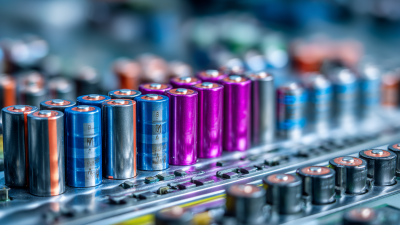
Empowering Innovation: How Chinese Manufacturing Leads the Charge with Best Double AA Batteries
-
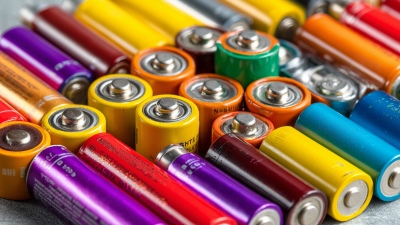
How to Choose the Best Bulk AA Batteries for Your Business Needs
-
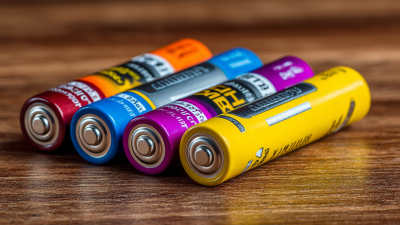
Ultimate Guide to Comparing the Best AA Batteries for Every Need
-
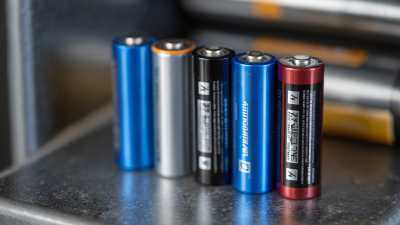
Your Ultimate Guide to Finding the Best AA Battery Replacement for Every Need
-
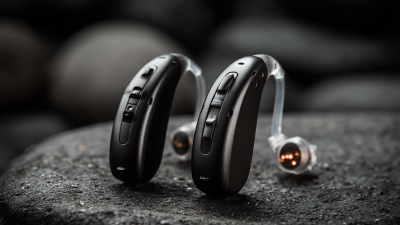
Navigating Import and Export Certifications for the Best Battery Operated Hearing Aids
